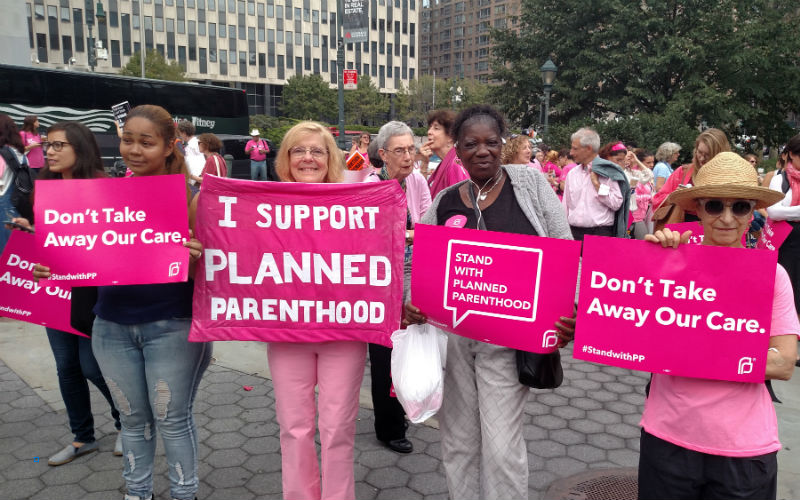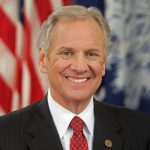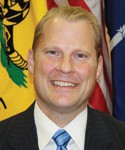
By Lindsay Street, Statehouse correspondent | A South Carolina agency is seeking to block public money from going toward family planning services at most non-primary care facilities — a move that would strip Medicaid dollars from any abortion-providing clinic in the state. But in justification of that move, the plan also includes expanding family planning services to make them more comprehensive and address chronic health care problems.
“It’s definitely a mixed bag,” said Sue Berkowitz, director of S.C. Appleseed Legal Justice Center, an organization that focuses on legal issues for low-income residents. “Yes, this is a political move for Planned Parenthood but there’s also some things in here that could be really, really helpful to low-income, rural beneficiaries.”

In August, Republican Gov. Henry McMaster signed an executive order that sought to toughen policies on abortion in the state. One of the items in the executive order tasked the S.C. Department of Health and Human Services (DHHS) to stop abortion clinics from receiving Medicaid funds for other services offered. But to do so, the state has to get federal approval via a waiver, which is the only way excluding providers would happen, according to DHHS
The abortion crackdown comes amid McMaster facing four GOP challengers in a state where politics of abortion is a red-meat issue among Republican voters. Political insiders say it’s in the governor’s interest to be seen strong on pro-life politics, which is a foundation of the platform of an opponent, Lt. Gov. Kevin Bryant of Anderson. McMaster, a Columbia native, needs a strong showing in Bryant’s Upstate to get the GOP nomination.

McMaster’s executive order and draft waiver may be viewed as a way to take away the bully pulpit from Bryant so the governor can bolster his standing among Upstate conservatives, in Bryant’s home turf. Next week, Statehouse insiders expect a move during the state budget debate on the Senate floor to include amendments to cut off state dollars going to Planned Parenthood. Bryant, as presiding officer, likely would be called on to rule whether such amendments were germane, giving him the opportunity to flex political muscle over the abortion issue. But McMaster’s strategy for the waiver could lessen the impact of any politicking about the issue by Bryant.
The draft waiver [read here] will be available to the public in the coming weeks, according to DHHS, but drafts have been obtained at some nonprofits, such as Appleseed.
Developing a novel approach
With the executive order asking DHHS “to seek waivers from the Centers for Medicare and Medicaid Services to allow the agency to exclude abortion clinics from the state’s Medicaid provider network,” the state agency has had to devine a way forward that could gain federal approval.
“(McMaster) gave the agency a very specific objective. What we sort of had to do was take the executive order and look at it in the context of the agency’s underlying mission, which is to improve the health of the beneficiaries we serve,” said Josh Baker, head of South Carolina’s Medicaid office during an interview. “We’re choosing to steer our beneficiaries to medical providers and medical practices we feel best meet their whole-health needs and that is going to be through inclusion of certain providers and exclusion of others.”
Of the three abortion providers in the state, only Planned Parenthood of South Atlantic’s Columbia location is enrolled in the S.C. Medicaid program, according to DHHS. There are more than 56,000 Medicaid providers in the state — ranging from pharmacies to specialty doctors. DHHS could not say how many providers would be impacted by the policy’s language.
No other state has successfully used such a policy change to block Medicaid money from reimbursing beneficiaries who use clinics that also provide abortions, according to Baker. Public money cannot be spent on abortions under federal law, but clinics that provide other services are not stopped from receiving Medicaid reimbursements in South Carolina. In Mississippi in 2016, lawmakers enacted a law that block Medicaid from reimbursing for family planning services at the state’s sole abortion clinic, but that law was later blocked by a federal judge.
Details about the proposed policy
The policy change is in the draft waiver, which will be sent to the federal government. After it becomes public, stakeholders and federal officials will work with state officials on negotiating its terms. The waiver’s language seeks a transition from “the traditional approach of family planning services to a preconception care model,” which Baker says aligns with the core objectives of DHHS toward improving birth outcomes.
“This approach addresses beneficiary health in a more comprehensive way than the family planning has done traditionally,” Baker told Statehouse Report. He said “targeted interventions” would be more available to address health concerns that lead to poor birth outcomes.
“It may seem outside-of-the box on its face, but it’s entirely consistent with the department’s mission to improving birth outcomes and improving the health of our beneficiaries.”
After the waiver request is made public, there will be a 60-day public comment period, including three public hearings. Then in July, it will be sent to Centers for Medicare and Medicaid Services (CMS), a federal agency under the U.S. Department of Health and Human Services. The review process takes about six months, according to DHHS.
Baker said limited-service clinics typically operate in urban areas of the state and don’t treat the whole person or allow for more follow-ups on other health issues.
“(The waiver) doesn’t undermine access to care,” Baker said. He added that if a person wants to interface with a limited-service provider, the state-owned family planning clinics will still be available, as would clinics like Planned Parenthood. There just won’t be reimbursements available for care received at private or nonprofit clinics.
Berkowitz said she doubted the waiver itself would prevent a clinic like Planned Parenthood from receiving Medicaid reimbursement if it made changes to become more comprehensive in its care and it could potentially qualify as a provider. She also said that Planned Parenthood is typically only reimbursed for contraception and pap smears — only a small part of their operating budget.
With more doctor visits and more care, there is a question of how much the program could end up costing the state. A cost analysis of the waiver is underway and the proposed plan cannot be more expensive than the current Medicaid program, according to Baker.
“We believe that the additional cost of some pharmacies or labs or doctor visits would be offset by preventing unintended pregnancies and bad birth outcomes,” Baker said. “That analysis is ongoing and will be part of the negotiation with CMS.”
Scrutiny pending
The draft waiver is not available to the public yet, which means many pro-choice groups have not had the opportunity to review it.
Sarah Riddle, communications manager of Planned Parenthood South Atlantic, which operates two clinics in the state, said it could not comment on the waiver at this time due to it not being public.
“The state has not formally opened that up for comment or publicly released the language for the proposed waiver, we’re not able to take a public position at this time,” Riddle said in an email to Statehouse Report. She added: “Planned Parenthood South Atlantic opposes any efforts to cut patients off from the qualified, trusted provider of their choice.”
S.C. Women’s Rights and Empowerment Network’s Associate Director of Policy and Government Relations Ashley Crary Lidow said her group will have to discuss the waiver’s implications with its members.
“Since the executive order, we’ve been waiting to see what happens,” she said. “Our ultimate goal is to ensure all individuals have access to high-quality, reproductive health care.”
The state’s affiliate of National Right to Life Committee, an anti-abortion group, said it supports any move that would remove public money from clinics that also perform abortions. South Carolina Citizens for Life released this statement:
“(The nonprofit) opposes government funding for any business or nonprofit that performs abortion. Abortion is not health care. It is the deliberate killing of the most vulnerable, defenseless members of our human family, unborn children, who have no rights at all.”
Berkowitz said there remain plenty of questions, which could get answered once the waiver request becomes public and can be scrutinized.
- Have a comment? Send to: feedback@statehousereport.com.



Re: “The abortion crackdown comes amid McMaster facing four GOP challengers in a state where politics of abortion is a red-meat issue among Republican voters. Political insiders say it’s in the governor’s interest to be seen strong on pro-life politics, which is a foundation of the platform of an opponent, Lt. Gov. Kevin Bryant of Anderson. McMaster, a Columbia native, needs a strong showing in Bryant’s Upstate to get the GOP nomination.”
I had been pondering whether or not the McMaster was attempting to pander to pro-life voters. I’m not sure if being pro-life alone will help elect him back to our state.